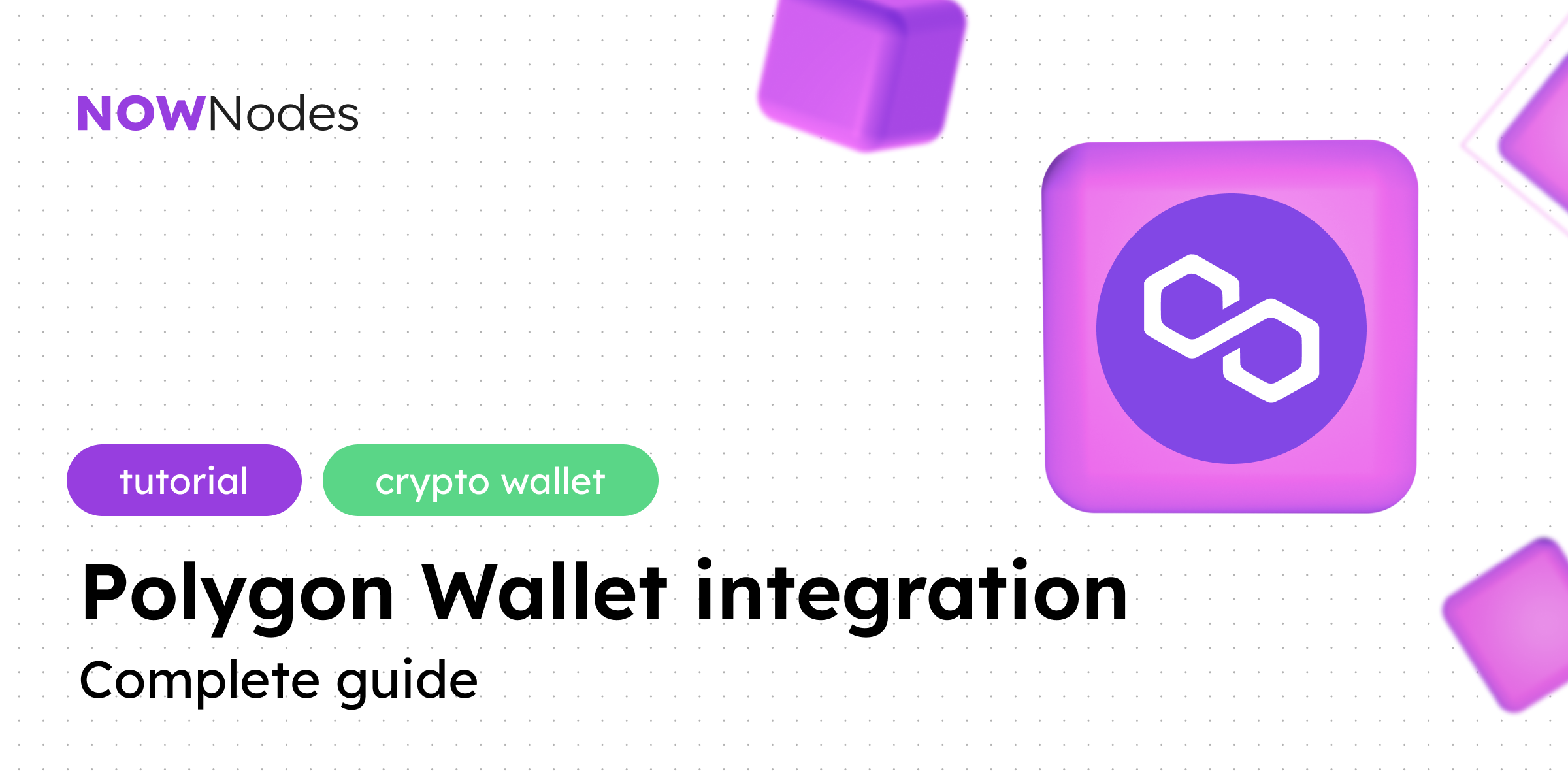Today, Polygon (POL) is a highly scalable and developer-friendly blockchain network. Moreover, to enable seamless interaction between wallets and the Polygon network, integrating via JSON-RPC is essential. This guide will walk you through the process using NOWNodes’ Polygon RPC endpoints, covering all the necessary methods for a fully functional wallet integration.
Step 1: Set Up Polygon RPC Endpoint
For the first step, before making any JSON-RPC calls, you need a working Polygon RPC endpoint from NOWNodes:
- Polygon Mainnet RPC URL:https://matic.nownodes.io/YOUR_API_KEY
So, add this URL to your wallet configuration as the primary Polygon RPC provider.
Note: Replace
YOUR_API_KEYwith your NOWNodes API key. If you don’t have one, get it here.
Step 2: RPC Methods for Wallet Integration
For the second step, for a wallet to fully support Polygon, it must implement the following JSON-RPC methods:
1. Account & Balance Management
- Lists wallet-controlled addresses (used for connection status)-
eth_accounts - Retrieves the POL balance of a given address –
eth_getBalance - Queries smart contract data (e.g., ERC-20 token balances) –
eth_call
2. Transaction Handling
eth_getTransactionCount– Gets the transaction count (nonce) for an address.eth_estimateGas– Estimates the gas required for a transaction.eth_sendRawTransaction– Broadcasts a signed transaction to the network.eth_getTransactionReceipt– Checks transaction status and logs after submission.
3. Blockchain Data & Sync Status
eth_blockNumber– Returns the latest block number.eth_getBlockByNumber– Retrieves block details by number.eth_syncing– Checks if the node is syncing with the network.
4. Real-Time Updates (Optional, WebSocket-Based)
eth_subscribe– Subscribes to events (new blocks, pending transactions, logs).eth_unsubscribe– Cancels an active subscription.
Step 3: WebSocket Integration for Live Features
For real-time updates (e.g., instant balance changes, pending transactions), use NOWNodes’ WebSocket endpoint:
wss://matic.nownodes.io/YOUR_API_KEY
Use cases:
- Live transaction confirmations
- Instant balance refreshes
- Smart contract event tracking
Step 4: Testing & Monitoring
And the last, after integration, ensure:
✅ Fast response times from the RPC server
✅ Accurate transaction confirmations (eth_getTransactionReceipt)
✅ Correct gas estimations (eth_estimateGas)
✅ Proper nonce handling (eth_getTransactionCount)
In other words, NOWNodes guarantees 99.95% uptime, making it ideal for production-grade wallets.
In this case, here’s example Wallet Integration Flow
- Connect Wallet →
eth_accounts - Fetch Balances →
eth_getBalance(POL) +eth_call(ERC-20 tokens) - Prepare Transaction →
eth_getTransactionCount(nonce) +eth_estimateGas - Send Transaction →
eth_sendRawTransaction - Confirm Transaction →
eth_getTransactionReceipt - (Optional) Live Updates →
eth_subscribe(new blocks, pending txs)
Conclusion
In conclusion, integrating Polygon via NOWNodes RPC gives developers a maintenance-free solution – we handle all network upgrades and infrastructure optimizations automatically.
According to optimal performance, utilizing WebSocket endpoints enables real-time data synchronization, enhancing user experience with instant updates. Therefore, NOWNodes’ high-availability RPC service ensures reliable connectivity, making it an ideal choice for production-grade wallet integrations. Moreover, you would stay updated on the latest changes through NOWNodes Telegram channel while enjoying 99.95% uptime and enterprise-grade reliability.
Get started today and streamline your Polygon wallet integration with NOWNodes.



